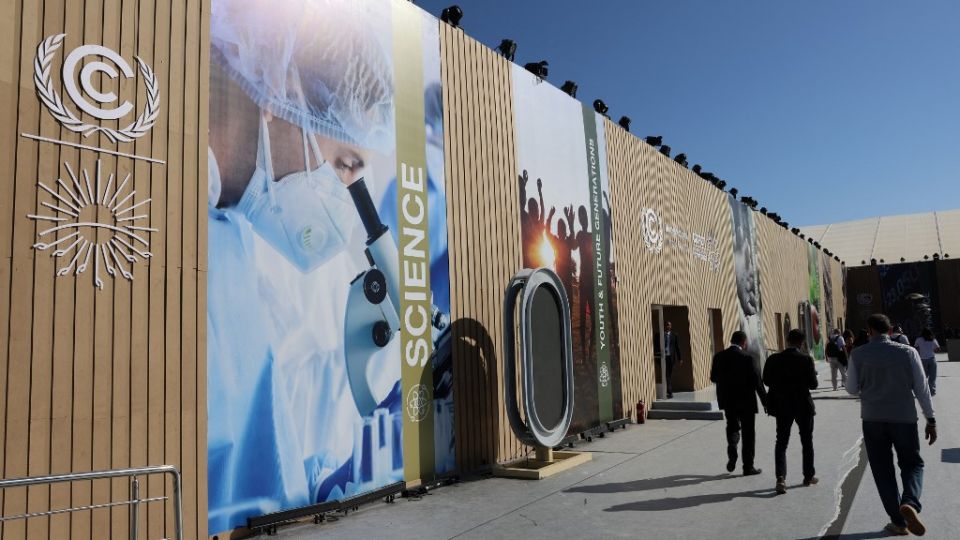November 7, 2022
JAKARTA – As the world gathers at Sharm el-Sheikh, Egypt for the United Nations climate conference (COP27), we are facing a dual challenge.
On the one hand, the climate crisis is hitting with ever-greater force. This summer, floods swept a third of Pakistan, killing thousands. In Ethiopia, the worst droughts in decades pushed millions into hunger and starvation. In the Sahel, water scarcity is exacerbating conflicts over resources and land, forcing people to migrate.
All of this shows the climate crisis is the biggest security challenge humanity faces in the 21st century – and taking action against it is more urgent than ever.
On the other hand, Russia’s war of aggression against Ukraine has been eroding the international trust we need for successful global climate action. President Vladimir Putin’s war is not only inflicting unspeakable suffering on Ukraine, but is also trampling the UN Charter underfoot. It has shaken global energy markets and fueled a hunger crisis, hitting the most vulnerable hardest. Putin’s aggression has brought geopolitical polarization to heights not seen since the Cold War.
As the German delegation heads to COP27, we are keenly aware of this tough environment. We know this will be a particularly difficult climate conference. Still, as Germany and with our partners in the European Union, we will do all we can to advance climate action. Now is the time for ambitious emissions cutting by all countries to stay on the 1.5-degree path. Now is the moment to show solidarity with the children, women and men hit hardest by storms and droughts.
As a major economy and emitter, Germany has particular responsibilities. When entering office last year, our government set out ambitious energy transition plans. Today, in response to Russia’s weaponization of energy, we are taking painful steps that seemingly contradict those plans. Many people from Africa, the Middle East and Asia are asking us: “Now that Russia’s war rages in Europe, has Germany cancelled its energy transition and its promises on solidarity?”
Our answer is clear – and it is also our message for COP27: Germany is not deviating one inch from its climate goals. On the contrary, we are doubling down on them.
Yes, we are taking tough decisions to get Germany and Europe through this and next winter. But the coal-fired power plants we have reactivated will run only until March 2024. New permanent pipelines we are building to import liquefied natural gas (LNG) are required by law to be hydrogen-ready. And in the European Union, we have committed to cutting gas consumption by 15 percent this winter – not least to push global LNG prices down.
Most importantly, our government has boosted Germany’s energy transition. In July, the Bundestag passed the most ambitious legislation ever to expand renewables and energy efficiency. In the first half of 2022, the share of renewables in our electricity mix rose to almost 50 percent – and with the new legislation, it will climb to 80 percent by 2030.
The European Union, after the Green Deal and the Fit-for-55 agenda, presented one of the strongest climate packages in its history this June – with stricter rules for renewables, energy efficiency and CO2 pricing. Last week, the EU decided to phase out the sale of new combustion engine vehicles by 2035. These steps will make Europe the first climate-neutral continent by 2050.
All this is making it clear that Russia’s war is not leading us back to a fossil fuels past. Instead, we are moving towards a greener future faster than before. Every solar panel and every wind turbine means more security: for our country and Europe, since they make us less dependent on fossil energy imports. And for the world, as every tenth of a degree less in global warming means fewer climate impacts globally.
At the same time, Germany is stepping up global climate solidarity. By increasing our contribution to international climate financing to six billion euro, we are doing our part to ensure that industrialized countries finally live up to their US$100 billion-pledge. In the Group of Seven, we are committed to doubling adaptation financing by 2025.
And we will work hard to achieve progress on loss and damage at COP27. With the Global Shield, the G7 is reaching out to vulnerable countries to expand disaster risk financing and insurance. From the Pacific to South Asia to the Sahel, rising sea levels, scorching heat and terrible floods are a threat to people’s safety and security. We hear you and we see you – and we stand by your side.
Germany is doing this also through its new climate diplomacy. The technologies for the global energy transition are out there. Now we have to transfer them to countries in the south – and mobilize financing away from fossils to renewables.
Germany, its partners and South Africa are setting up a Just Energy Transition Partnership. Together, we are investing billions in renewables – and in ensuring that communities dependent on coal mining get new opportunities to make a living.
The G7 is working on more such partnerships with other countries: Senegal, India, Indonesia and Vietnam. Not only to help them to protect the climate – but to transform their entire economies.
It is important to keep these opportunities of the green transition in mind as we meet in Sharm el-Sheikh. The dual challenge of ever-harsher climate impacts and geopolitical tensions will make negotiations hard – their outcome is unclear.
But Germany stands ready to cooperate – for greater ambition and greater solidarity.
***
Annalena Baerbock is German foreign minister. Robert Habeck is German economic affairs and climate action minister.


